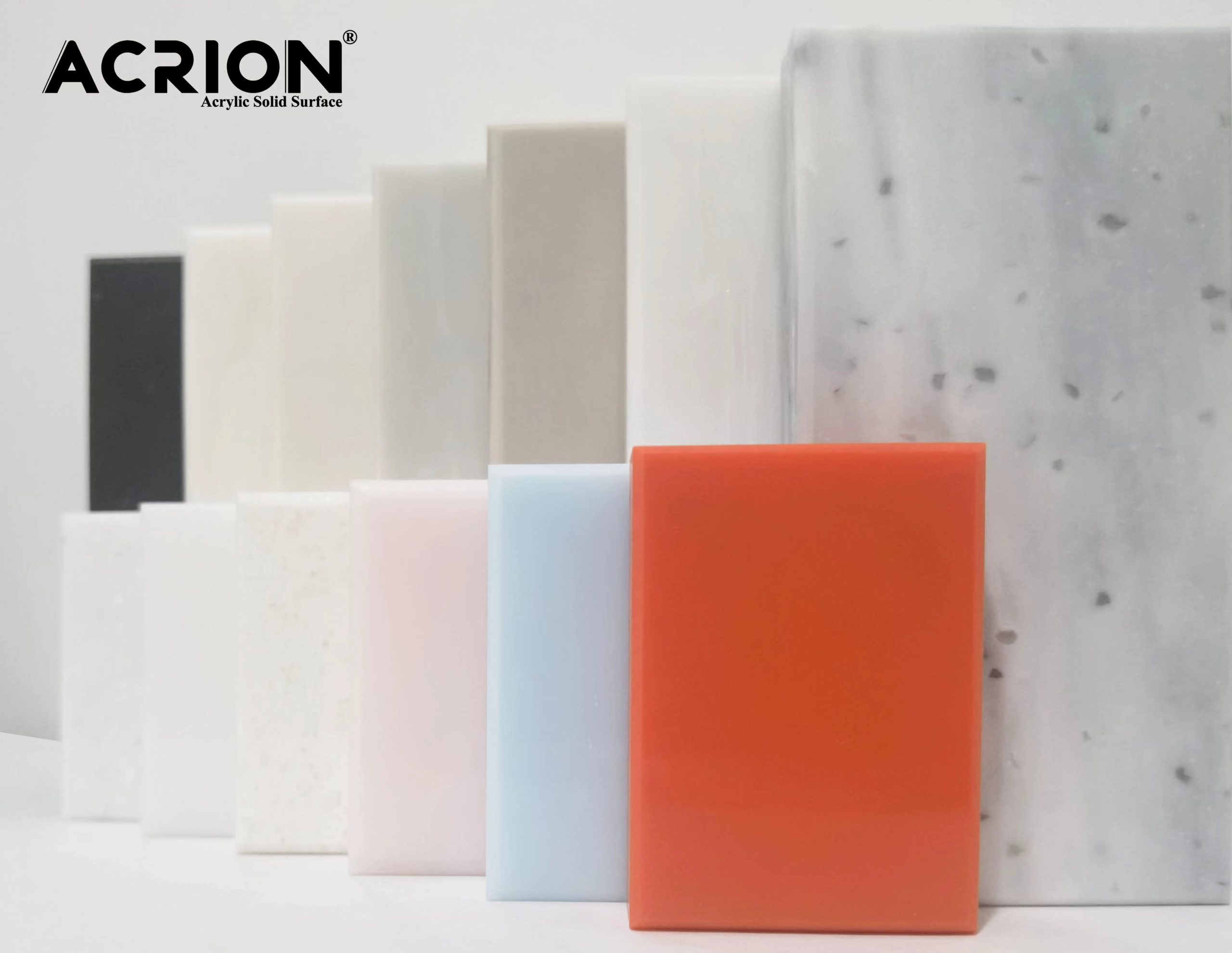Key Factors Influencing Corian Countertop Installation Timelines
Pre-Installation Preparation and Customization
The initial phase involves precise measurement and template creation, which typically requires 1-3 days depending on project complexity. Custom designs with curved edges or integrated sinks demand additional time for CNC programming and material shaping. For instance, a kitchen island with a wraparound Corian surface may need 5-7 days for template finalization and material preparation. During this stage, environmental conditions must be controlled—maintaining workshop temperatures between 18°C-25°C prevents thermal expansion issues during cutting.
Material supply chains significantly impact timelines. Standard color options usually arrive within 7-10 days, while custom colors or large-format sheets (3.6m+) may require 14-21 days for production and delivery. In one documented case, a commercial project experienced 10-day delays due to unexpected raw material shortages at the manufacturer’s facility, highlighting the importance of buffer periods in scheduling.
On-Site Installation Process Breakdown
The core installation phase averages 2-5 days for typical residential projects. For standard L-shaped kitchen countertops, professionals allocate:
- Day 1: Substrate preparation and initial positioning
- Day 2: Precision alignment and adhesive application
- Day 3: Seam bonding and clamping (with 24-hour cure time)
- Day 4: Edge finishing and initial polishing
- Day 5: Final inspection and protective coating
Complex installations involving multiple elevation changes or backsplash integration may extend to 7-10 days. A bathroom vanity project with tiered surfaces and undermount sinks required 8 days due to the need for sequential curing of adhesive layers and precise waterproofing treatments.
Post-Installation Curing and Quality Assurance
The critical curing period demands 72 hours of undisturbed setting time for structural adhesives to reach 90% strength. During this phase, temperature fluctuations must remain within ±5°C of the installation environment to prevent joint stress. One case study revealed that premature weight placement on a newly installed island countertop caused 2mm seam separation, requiring complete reassembly.
Final quality checks involve:
- Water retention testing (48-hour continuous exposure)
- Load-bearing verification (50kg static load for 24 hours)
- Lighting inspection (using 500-lumen LED at 45° angles to detect surface defects)
These procedures typically add 2-3 days to the timeline but prevent 85% of potential warranty claims related to improper curing or installation defects.
Contingency Planning for Common Delays
Industry data shows that 60% of Corian projects experience minor schedule adjustments due to:
- Substrate leveling issues (average 1.5-day delay)
- Unexpected wall irregularities requiring shimming (0.5-2 days)
- Plumbing reconfiguration needs (1-3 days)
Smart contractors build 10-15% buffer time into schedules. For example, a 20-day estimated project should include 2-3 extra days for contingencies. In high-humidity environments (>70% RH), adhesive cure times may extend by 40%, necessitating schedule adjustments. Proactive communication about these potential variables helps manage client expectations effectively.
